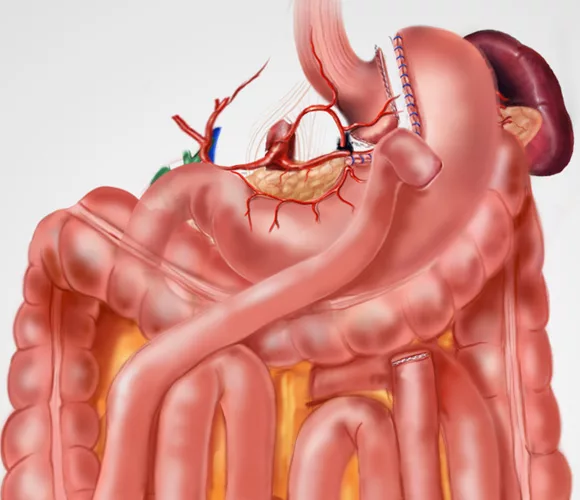Obesity and Metabolic Surgery
Gastric Bypass

Principle
This procedure performs a gastric bypass leaving only a 30-50 cc pouch in contact with the esophagus.
Features
It associates restriction with moderate malabsorption. The absorption of food is diminished by the reduction in the useful length of the intestine. Two connections (anastomoses) are necessary, between the small gastric pouch and the intestine and in the intestine itself.
How is the Procedure Performed?
The operation is performed by laparoscopy (5 to 6 small skin incisions are necessary).
The duration of the operation is about 1.5 hours. The hospital stay is about 2 to 3 days.
Advantages
Weight loss is fast. It occurs mostly during the first year. No part of the digestive tract is removed.
Expected Weight Loss
The weight loss is in the order of 70 to 75% of the excess weight, looking back over more than 10 years of results.
Vitamin & Nutritional Deficiencies
Usual deficiencies in vitamin B12, vitamin D and iron, easily supplemented.
Frequent deficiencies in vitamins B1, B6, C.
Rare nutritional deficiencies.
Vitamin supplements are now recommended for life after a Gastric Bypass.
we help you achieve your weight-Loss Goals
The surgical management of obesity is based on 4 axes.
The surgical intervention, the preoperative and postoperative nutritional care, a preoperative and sometimes postoperative psychological assessment and follow-up, and a regular and sustained physical activity…
